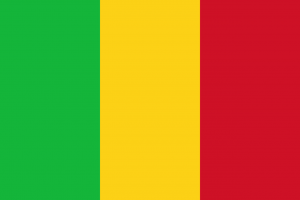Language/Bambara/Vocabulary/Feelings-and-Emotions
Hi Bambara learners! 😊
In this lesson, we will learn how to express our feelings and emotions in Bambara. It is important to be able to talk about our emotions as it helps us communicate better and understand others better. Let's get started!
With the completion of this lesson, consider investigating these related pages: Drinks & Colors.
Basic Emotions[edit | edit source]
Let's start with some basic emotions that we all feel:
| Bambara | Pronunciation | English |
|---|---|---|
| i dɔn | ee dohn | I am happy |
| i kɛlɛtan | ee keh-leh-tan | I am sad |
| i tɛmun | ee teh-mun | I am afraid |
| i fɔlɔ | ee foh-loh | I am angry |
Here are some examples of how to use these words in context:
- Person 1: I dɔn. (I am happy.)
- Person 2: I ka barika la. (That's good to hear.)
Other Emotions[edit | edit source]
In addition to the basic emotions, there are other emotions that we may feel:
| Bambara | Pronunciation | English |
|---|---|---|
| i jiɲɛn | ee jee-nyen | I am surprised |
| i tɛrɛkan | ee teh-reh-kahn | I am nervous |
| i mɛn | ee mehn | I am tired |
| i yɛrɛwolo | ee yeh-reh-woh-loh | I am confused |
| i yenya | ee yehn-yah | I am ashamed |
Here are some examples of how to use these words in context:
- Person 1: I jiɲɛn kan na. (I am surprised.)
- Person 2: A kɔrɔ. (What happened?)
Analogies and Cultural Information[edit | edit source]
In Bambara culture, it is important to show respect and avoid confrontations. Therefore, it is common to use analogies to express one's emotions instead of directly saying how one feels. For example, instead of saying "I am angry", one may say "My hair is standing up". Here are some examples:
| Bambara | Pronunciation | English |
|---|---|---|
| i ka bolo | ee kah boh-loh | I am feeling down |
| nya taara | nyah tah-rah | I am nervous |
| i ka ɲɛgɛ | ee kah jeh-geh | I am feeling hot |
| ka gɔkɔŋ o wa | kah goh-kohng oh wah | I am feeling playful |
| i barala | ee bah-rah-lah | I am feeling lazy |
Here are some examples of how to use these analogies in context:
- Person 1: Nya taara. (I am nervous.)
- Person 2: Ka saraba da. (Just take it easy.)
Expressions with Emotions[edit | edit source]
There are some expressions in Bambara that are used to convey emotions. Here are some examples:
| Bambara | Pronunciation | English |
|---|---|---|
| duga la | doo-gah lah | Happily |
| ka barika la | kah bah-ree-kah lah | That's good to hear |
| aw be wari la | ahw beh wah-ree lah | Sorry |
| amadadu la | ah-mah-dah-doo lah | Welcome |
| dañgɔyɔrɔ la | dahng-oh-yoh-roh lah | Very cool |
Here are some examples of how to use these expressions in context:
- Person 1: Duga la. (Happily.)
- Person 2: Ka be baara kelen ye. (You are doing well.)
Practice Dialogue[edit | edit source]
- Person 1: I dɔn. (I am happy.)
- Person 2: Ka barika la. (That's good to hear.)
- Person 1: I tɛmun. (I am afraid.)
- Person 2: Ka na ne nana. (Don't worry.)
- Person 1: I ka ɲɛgɛ. (I am feeling hot.)
- Person 2: Mogo la. (Take it easy.)
- Person 1: I ka bolo. (I am feeling down.)
- Person 2: Ka lɛ. (Cheer up.)
To improve your Bambara Vocabulary, you can also use the Polyglot Club website. Find native speakers and ask them any questions!
Sources[edit | edit source]
➡ If you have any questions, please ask them in the comments section below.
➡ Feel free to edit this wiki page if you think it can be improved. 😎
Other Lessons[edit | edit source]

